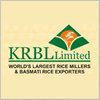Filter interviews by
Sakthi Sugars Interview Questions and Answers
Sakthi Sugars Interview Experiences
3 interviews found
I applied via Referral and was interviewed before Apr 2022. There were 2 interview rounds.

(2 Questions)
- Q1. What is the truth of quality
- Ans.
Quality is the degree of excellence of a product or service that meets or exceeds customer expectations.
Quality is subjective and varies from person to person
Quality is not just about meeting specifications, but also about meeting customer needs and expectations
Quality is a continuous process and requires constant improvement
Quality is everyone's responsibility, not just the production officer
Examples of quality includ...
- Q2. Who is the father of sugar cane
- Ans.
The father of sugar cane is considered to be Papirius, a Greek botanist.
Papirius is credited with discovering sugar cane in India around 327 BC.
He is also known for introducing sugar cane to the Mediterranean region.
Sugar cane cultivation and processing techniques were later developed by the Arabs and spread to Europe during the Crusades.
I applied via Referral and was interviewed before Jul 2021. There were 2 interview rounds.

(4 Questions)
- Q1. How you controlling stores inventory
- Ans.
We control stores inventory through regular audits, implementing inventory management software, and setting up reorder points.
Regular audits to identify discrepancies and ensure accuracy
Implementing inventory management software to track inventory levels and movement
Setting up reorder points to ensure timely replenishment
Monitoring sales trends and adjusting inventory levels accordingly
Collaborating with suppliers to o...
- Q2. What's the definition of inventory
- Ans.
Inventory refers to the goods or materials a business holds for the purpose of resale or production.
Inventory includes raw materials, work-in-progress, and finished goods.
It is an important aspect of supply chain management.
Inventory management involves balancing the costs of holding inventory with the benefits of having enough stock to meet demand.
Examples of businesses that rely heavily on inventory management includ...
- Q3. How to identify the class of inventory
- Ans.
Inventory class can be identified based on its usage, demand, and value.
Analyze the usage frequency of the inventory
Determine the demand for the inventory
Evaluate the value of the inventory
Classify inventory as A, B, or C based on usage, demand, and value
A - high usage, high demand, high value
B - moderate usage, moderate demand, moderate value
C - low usage, low demand, low value
- Q4. Clarification the ABC analysis
- Ans.
ABC analysis is a technique used to categorize items based on their value or importance.
ABC analysis divides items into three categories: A, B, and C.
Category A items are the most important and valuable, while category C items are the least important and valuable.
The analysis is based on the Pareto principle, which states that 80% of the value comes from 20% of the items.
Example: A store might use ABC analysis to categ...
Interview Preparation Tips
I applied via Referral and was interviewed before Jul 2021. There was 1 interview round.
(1 Question)
- Q1. Before technical discussion, be acquainted of oilseed and edible oil processing especially soybean. Must be capable to demonstrate sensibility to work in a system orientated food processing Industry.
- Ans. Go through the company website and collect all the relevant information.
Interview Preparation Tips
Top trending discussions






Interview questions from similar companies

Interview Questionnaire
2 Questions
- Q1. How to increase roi
- Q2. Increase secondary, increase volume , range selling

I applied via Referral and was interviewed in May 2023. There were 3 interview rounds.

How Sales improve.
How calculate wd roi.
How team handle.
How appointment new db.and sb db
(2 Questions)
- Q1. Only talk salery and change job reason
- Q2. No any one Question my side

Assistant Manager Interview Questions & Answers
EID Parry (India)posted on 14 May 2024
I applied via Recruitment Consulltant and was interviewed before May 2023. There was 1 interview round.
(2 Questions)
- Q1. Previous Experience related
- Q2. Technical Knowledge
Interview Preparation Tips

Overall it's a Very good interview to discuss the plant
(2 Questions)
- Q1. Regarding my responsibility and update the report
- Q2. Maintaining the parameters and solving the problem

I appeared for an interview in Mar 2025, where I was asked the following questions.
- Q1. How to control the Inventory
- Q2. Methodology in maintenance
- Ans.
Maintenance methodology involves systematic approaches to ensure equipment reliability and performance through planned actions.
Preventive Maintenance: Regularly scheduled maintenance tasks, such as oil changes in vehicles, to prevent breakdowns.
Predictive Maintenance: Using data analysis tools to predict when equipment will fail, like monitoring vibration in motors to foresee issues.
Corrective Maintenance: Addressing e...
- Q3. MTTR & MTBF
Interview Preparation Tips

Interview Questionnaire
1 Question
- Q1. About automation and field instrumentation.
Interview Preparation Tips


(3 Questions)
- Q1. Technical session
- Q2. Troubles pre operation with PM model
- Ans.
Troubles with pre-operation planning in project management model
Ensure clear communication and alignment with stakeholders
Identify potential risks and develop contingency plans
Establish a detailed timeline and allocate resources effectively
Regularly monitor progress and adjust plans as needed
- Q3. Suggest to initiative pm model
- Ans.
Implementing a project management model involves defining project goals, creating a timeline, assigning tasks, monitoring progress, and evaluating outcomes.
Define project goals and objectives clearly
Create a project timeline with milestones
Assign tasks to team members based on their skills and expertise
Monitor progress regularly and make adjustments as needed
Evaluate outcomes to identify areas for improvement
Examples: ...
Sakthi Sugars Interview FAQs
Tell us how to improve this page.
Interview Questions for Popular Designations
Overall Interview Experience Rating
based on 1 interview experience
Difficulty level
Duration
Interview Questions from Similar Companies
Sakthi Sugars Reviews and Ratings
based on 37 reviews
Rating in categories
|
Electrical Engineer
10
salaries
| ₹4 L/yr - ₹6.5 L/yr |
|
Assistant Manager
6
salaries
| ₹4 L/yr - ₹6 L/yr |
|
Mechanical Engineer
6
salaries
| ₹2.4 L/yr - ₹5 L/yr |
|
Instrument Engineer
6
salaries
| ₹1.6 L/yr - ₹5.6 L/yr |
|
Junior Engineer Instrumentation
5
salaries
| ₹1.6 L/yr - ₹5.8 L/yr |

Heritage Foods

Hatsun Agro Product

Parag Milk Foods

Triveni Engineering & Industries
- Home >
- Interviews >
- Sakthi Sugars Interview Questions











